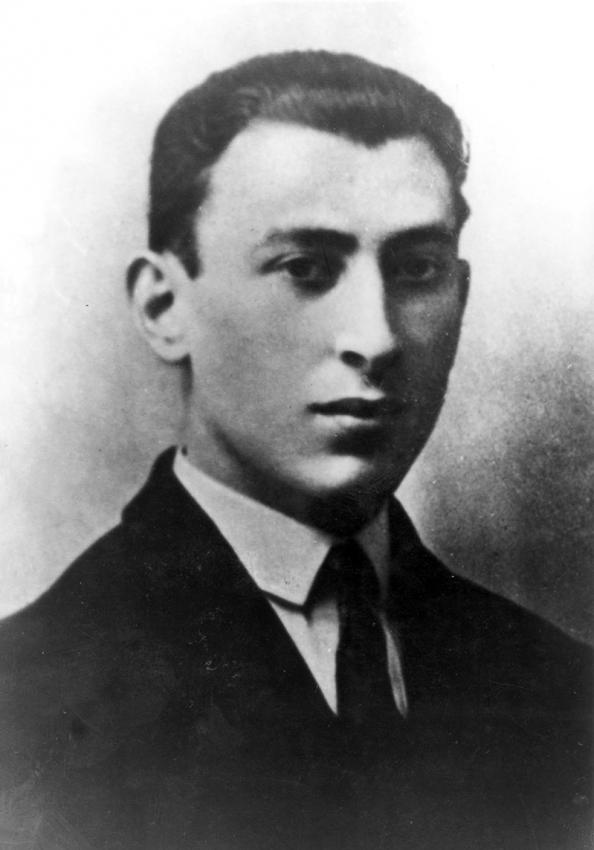The Wittenberg Affair: One or Twenty Thousand?
Goups of people were walking when non-Jews came upon them and said, "Give us one of you and we will kill him, if not, behold we will kill all of you." Even if all will be killed, one soul from Yisrael may not be given over. Had they specified an individual [from the second group]… he should be delivered and [the group] will not be killed.
Jerusalem Talmud, Trumot 47a, chapter 8, law 4
In June 1943 the Germans arrested two communist activists in Vilna. One of them, Kozlowski, broke under interrogation and admitted to having links to Yitzhak Wittenberg. On the 8th of July the SiPO demanded that Jacob Gens, head of the Ghetto, arrest Wittenberg. On the 15th of July Gens summoned the FPO to a conference in his house. The Staff Command, including Wittenberg, arrived at midnight. During the meeting Lithuanian police entered the room and demanded to know which was Wittenberg. Gens pointed at Wittenberg and the Lithuanians handcuffed him and took him away. Members of the FPO attacked the Jewish police and the Lithuanians that were transporting Wittenberg and forcibly freed him. Wittenberg decided on a full mobilisation of the underground, distribution of weapons and manning the positions that had been predetermined for an emergency situation. Wittenberg himself went into hiding on the advice of his friends.
At 3:00 am Gens called the police, the heads of the work groups and the shtarke ("The strong ones" in the ghetto, some of whom were members of the underworld; they were a supplementary force to the police and were also active in smuggling) to the courtyard of the Judenrat. Rumours about the release of Wittenberg spread through the ghetto and many of the ghetto inhabitants came to the courtyard. Gens informed them that the Germans were threatening to enter the ghetto if Wittenberg was not arrested. Fearing that the ghetto would be liquidated, a hunt for Wittenberg began. A delegation from the ghetto leadership and public figures turned to the underground Command requesting that Wittenberg be turned in to save the rest of the ghetto. The Staff Command faced a difficult decision. On the one hand, they had reached a situation that could lead to an uprising, and on the other, the FPO members found themselves before a united public demanding Wittenberg's arrest. FPO members were even physically accosted by the public.
The German's ultimatum was postponed. Gens promised that he would try to free Wittenberg. During the day Wittenberg met with members of the Staff Command. The difficult situation in the ghetto was described to him. He considered suicide but according to Gens the Germans had demanded him alive. Once even the Communists in the ghetto demanded his arrest, Wittenberg accepted the decree. He gave his pistol to Kovner, appointed him leader and went out into the street.
Wittenberg's prayer 'Ich gehe' (Yiddish - I Go) spread like thunder through the ghetto. Cries suddenly became silent. Jews began to swarm outside. Doors and windows were opened again.
Shmerke Kaczerginski, I Was A Partisan, p. 78
Wittenberg turned himself in to Gens, was taken out of the ghetto via a side gate and delivered to the Germans. In the prison cell, he took poison and was found dead in his cell the following morning.
Following this episode many underground members abandoned the idea of an uprising and decided to leave for the forests. The pursuit of Wittenberg by the ghetto leadership in order to turn him over to the Germans had proven to the underground members that the majority of the Jews in the ghetto were not prepared to fight. Following stormy arguments, the FPO Staff Command decided that although for the most part they would remain in the ghetto, some members would begin leaving for the forests. The first group of FPO members to leave, left on the 24th of July 1943, numbered 21 members and was called "Leon" (Wittenberg's pseudonym in the underground).









